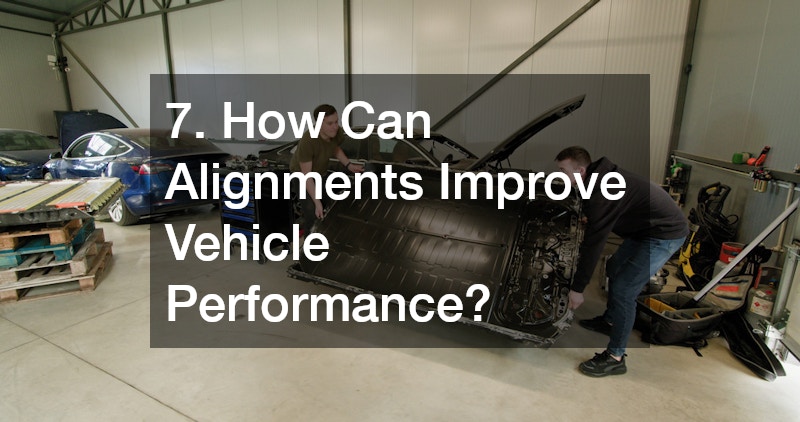Welcome to our comprehensive guide on the major services your vehicle may require. Regular vehicle maintenance is crucial to keep your car running smoothly and safely. Major services not only extend the life of your vehicle but also address the most common questions and topics regarding essential car services. Our journey will take you through the ins and outs of necessary maintenance to ensure your vehicle remains in top condition.
Whether you’re a seasoned driver or a new car owner, understanding major services for your vehicle is crucial. By keeping up with these services, you can prevent breakdowns, save on costly repairs, and ensure road safety. Let’s delve into the specifics of each service and provide you with the knowledge you need to maintain your vehicle efficiently.
With this guide, you have no need to worry about missing out on critical vehicle checks. We’ll cover everything, from full inspections to necessary system checks, providing a thorough understanding of each service you might require. Join us and discover how major services can make a difference in your car’s performance and your peace of mind.
1. What is a Full Vehicle Inspection?

A full vehicle inspection is a comprehensive evaluation of your car’s overall health and performance. During this process, skilled technicians at local auto repair shops meticulously examine essential systems such as brakes, steering, suspension, tires, lights, and fluid levels. They also check for leaks, worn-out components, and signs of corrosion that could compromise your car’s safety or efficiency. These detailed assessments are designed to identify even minor issues before they evolve into costly or dangerous problems. By addressing normal wear and tear promptly, a full vehicle inspection ensures your car continues to run smoothly, efficiently, and safely.
The importance of regular vehicle inspections cannot be overstated. Routine checks help catch potential issues—like weakened brake pads, low transmission fluid, or uneven tire wear—before they cause serious damage or lead to roadside emergencies. They also play a crucial role in maintaining your car’s value and longevity, as well-maintained vehicles often enjoy better fuel economy and fewer unexpected repair bills. Many inspections also include cosmetic services such as auto dent removal, ensuring your vehicle not only functions well but looks great too.
Incorporating full vehicle inspections into your regular maintenance routine fosters confidence every time you get behind the wheel. Choosing a reputable local auto repair shop guarantees experienced professionals who understand your vehicle’s unique needs and manufacturer guidelines. These experts provide detailed reports and personalized recommendations, empowering you to make informed decisions about necessary repairs or replacements. Ultimately, consistent inspections aren’t just about maintenance—they’re about protecting your investment, ensuring reliability, and keeping you and your passengers safe on every journey.
2. How Often Should You Change Your Vehicle’s Oil?
Oil changes are among the most vital maintenance services for keeping your car running smoothly and efficiently. Engine oil serves as the lifeblood of your vehicle, lubricating internal components to minimize friction, reduce heat, and prevent premature wear. Over time, oil breaks down and accumulates dirt, metal particles, and other debris, which can cause engine parts to grind against each other and lead to costly damage. Most manufacturers recommend changing your oil every 5,000 to 7,500 miles, though this interval can vary based on your driving habits, vehicle type, and oil grade.
Neglecting regular oil changes can result in decreased engine performance, poor fuel economy, and even complete engine failure. Routine maintenance at trusted local auto repair shops ensures your oil and filter are replaced correctly and on schedule. Many of these professionals also offer additional services—such as tire checks, fluid top-offs, and auto dent removals—helping maintain both the appearance and functionality of your car.
Beyond protecting your engine, fresh oil helps improve fuel efficiency, keeping your vehicle running cleaner and cooler. Consistent oil changes extend engine life and reduce the risk of breakdowns, providing a smoother, more reliable driving experience. Treating oil changes as a non-negotiable part of your vehicle maintenance routine safeguards your investment and keeps your car performing at its best for years to come.
3. What Are the Symptoms of Brake System Issues?
Your vehicle’s brake system is one of the most critical components for ensuring your safety on the road, and it requires consistent care and attention. Brakes are responsible for giving you control and stopping power in all driving conditions—whether you’re navigating city traffic or descending steep hills. Over time, components such as brake pads, rotors, and fluid can wear down, reducing performance and increasing stopping distances. Common warning signs of brake issues include high-pitched squealing or grinding noises, a vibrating steering wheel, a spongy or unresponsive brake pedal, or the vehicle pulling to one side during braking.
Neglecting brake maintenance can severely compromise your safety and lead to expensive repairs. Early detection allows professionals to replace worn-out pads, resurface rotors, or flush contaminated brake fluid before problems escalate. Many local auto repair shops offer comprehensive services, often collaborating with specialists in related fields—such as windshield replacement or tire care—to provide a complete safety check for your vehicle.
Regular brake inspections as part of your vehicle’s major service schedule not only enhance safety but also improve driving comfort and confidence. Certified technicians use specialized diagnostic tools to assess the entire system, ensuring all components function properly. By addressing brake issues promptly, you extend the lifespan of your braking system, maintain optimal vehicle performance, and avoid costly overhauls later. Prioritizing brake maintenance is a small investment that delivers peace of mind and keeps every drive as safe as possible.
4. When Should You Replace Your Vehicle’s Tires?

Tire replacement is a significant aspect of maintaining your vehicle’s safety and performance. The general recommendation is to replace tires every six years, though this can depend on usage and wear. Regular tire checks, including tread depth and pressure, are essential to gauge when a replacement is imminent.
Your vehicle’s tires are its only contact point with the road, meaning tire health is paramount. Uneven tread wear or vibrations can be tell-tale signs of tire issues. Rim repair service providers often assist with tire evaluations, ensuring that your replacements are timely and safe.
High-quality tires not only enhance grip and handling but also improve fuel efficiency and riding comfort. Including tire checks in your routine major services ensures longevity and prevents potential road hazards. Stay proactive with tire maintenance to enjoy smooth, safe journeys every time.
5. How to Maintain Your Vehicle’s Battery?
A vehicle’s battery is an essential component that requires regular attention. Checking your battery at least twice a year can help prevent unexpected failures. Most experts at local auto repairs include battery checks in their major services to ensure reliable starts and performance.
Signs of battery trouble include slow engine crank or flickering dashboard lights. Addressing these issues early can prevent more severe problems down the line. In some cases, accompanying tasks like car graphics installations might involve battery disconnections, during which a professional can also check battery health.
Regular battery maintenance includes cleaning terminals, ensuring secure connections, and testing its charge. Staying mindful of extreme weather conditions that can affect battery life is also vital. With proper care, your car battery can continue to provide dependable power for all your vehicle’s needs.
6. What is the Importance of Regular Transmission Service?
Transmission service is a critical element of major vehicle maintenance. Its main role is to ensure that your vehicle shifts gears smoothly. This service, typically done every 30,000 to 60,000 miles, involves fluid changes and checking for leaks or worn parts.
Failing to maintain the transmission can result in slipping gears or complete transmission failure, leading to costly repairs. When partnering with golf cart dealerships, you’ll find that they emphasize regular maintenance for preserving the longevity of your vehicle’s transmission, recognizing its importance in overall performance.
Regular transmission services enhance the driving experience by ensuring seamless power delivery from engine to wheels. Engaging with professionals for this service guarantees that your vehicle maintains optimum transmission performance. It’s a proactive measure in your vehicle’s longevity and efficiency strategy.
7. How Can Alignments Improve Vehicle Performance?

Alignments are a necessary part of major services, ensuring that your wheels are set to the recommended angles for optimal performance. Misaligned wheels can lead to uneven tire wear, reduced efficiency, and handling issues. Regular alignment checks prevent these problems from affecting your driving experience.
Many local auto repairs offer alignment services as part of their maintenance packages, often alongside other essential checks. Alignment ensures your vehicle tracks straight and reduces strain on steering and suspension components. It’s akin to tuning a musical instrument—ensuring every part is in harmony.
Agricultural vehicles, such as tractors, require precise alignment to effectively perform their duties. Regular alignment prevents excessive wear and tear, promoting vehicle longevity. Keep your vehicle in optimal shape with proper alignment, ensuring smooth and controlled rides every time.
8. Why Should You Maintain Your Vehicle’s Cooling System?
The cooling system plays a vital role in preventing engine overheating. Regularly maintaining this system, including checking coolant levels and inspecting hoses, is crucial. A failing cooling system can lead to engine damage, making these major services a non-negotiable for vehicle health.
Visit any renowned local auto repairs and find that cooling system checks are often bundled with basic inspection packages. Staff at boat dealerships, although specializing in marine vehicles, often underscore the importance of cooling for both vehicles and boats alike. A well-maintained cooling system keeps engines running efficiently and prevents unnecessary breakdowns.
Routine inspections and timely coolant flushes are recommended to keep the cooling system functional. This reduces the risk of overheating and ensures that your engine performs at optimal levels. Adjusting to seasonal changes with appropriate coolant concentrations is also beneficial for maintaining vehicle integrity.
9. What Role do Filters Play in Vehicle Maintenance?
Filters are unsung heroes in vehicle maintenance, playing critical roles in keeping various systems clean and efficient. Air, oil, and fuel filters require regular attention to prevent contaminants from affecting performance. These components are checked as part of comprehensive major services at credible local auto repairs.
Neglecting filter maintenance can result in decreased fuel efficiency, sluggish engine performance, and increased emissions. Regular replacement of these filters ensures that your vehicle operates smoothly and efficiently. A well-maintained filtration system plays a crucial role in keeping a vehicle running like new, a fact often acknowledged by luxury golf carts specialists.
Maintaining filters isn’t just about preserving your car’s performance but also about extending its lifespan. With clean filters, vehicles breathe easier, translating into optimal function and reduced wear on components. It’s a simple yet effective means of ensuring long-term health for your vehicle.
10. How Essential is Regular Air Conditioning Service?

Regular air conditioning service ensures both comfort and safety, providing reliable climate control for vehicle occupants. Over time, air conditioning systems can lose efficiency due to refrigerant loss or clogged filters. It’s a fundamental part of major services that keeps systems operational when you need them most.
Services offered by local golf cart dealers frequently include air conditioning maintenance as a priority. Maintaining cooling systems is crucial in all vehicles, ensuring that they continue to deliver freshness on demand. An efficiently running air conditioning system maintains comfort and can prevent driver fatigue over long journeys.
Regular check-ups for leaks, refrigerant levels, and compressor functionality safeguard against unexpected failures. Whether driving in urban settings or tackling off-road adventures, a functional air conditioning system provides much-needed relief. You’ve invested in your vehicle, and consistent air conditioning service preserves that investment.
Regularly servicing and maintaining various aspects of your vehicle is vital not only for longevity and performance but also for ensuring safe travel. By attentively addressing these major services, you can prevent costly repairs and enjoy a reliable driving experience. From brake checks to filter replacements, these services work together in a comprehensive vehicle care regimen.
Major services require consistent attention to detail, involving experts who bring valuable insights into vehicle care. By embracing these practices, you reinforce your commitment to vehicle safety and reliability. Thank you for engaging with our extensive guide on essential vehicle services. We hope this resource enhances your understanding of vehicle maintenance, promoting peace of mind and a longer lifespan for your beloved automobile.


